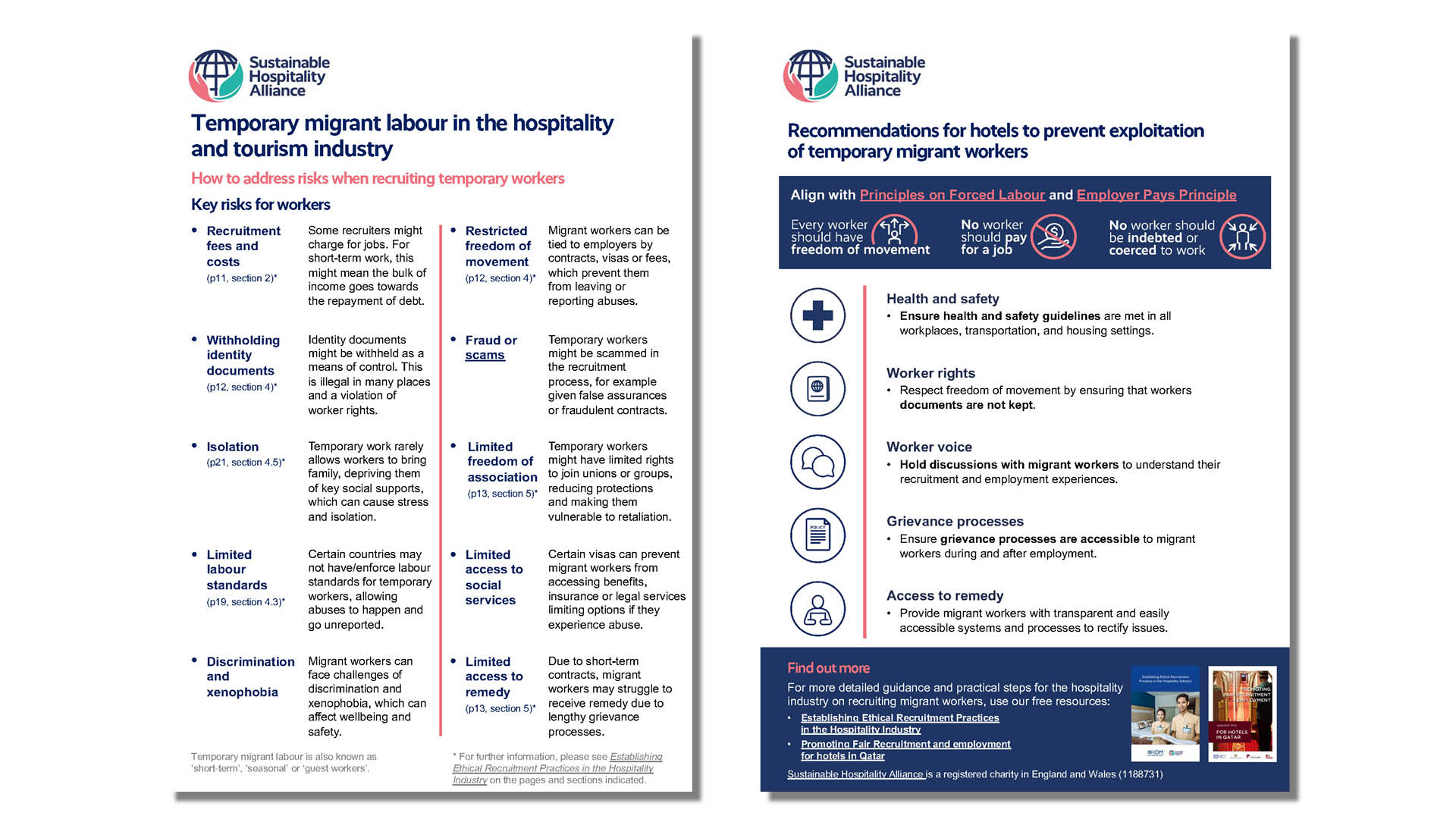Temporary labour is vital within the hospitality industry and provides new prospects for job seekers, but it can leave some people vulnerable.
Temporary migrant workers (workers moving from their country to undertake non-permanent employment in another country) have played a substantial role in the growth of the hospitality industry for many years. This common practice within the industry enables hotels and other businesses to hire suitably skilled and talented individuals to fill gaps in the local labour market, in preparation for large-scale events and the opening of new hotels.
What are some of the risks for temporary migrant workers?
Problems can arise within the recruitment process and during employment:
- Positions are often filled through labour recruiters and employment agencies, providing prime opportunity for recruiters to disguise illegal charges as ‘admin’ or ‘processing’ fees. This can result in workers paying thousands of pounds and finding themselves heavily in debt.
- Some migrant employees are misled about the nature of the job on offer. They might believe they have secured a receptionist job, only to discover upon arrival that they are required to work as a gardener or perform manual labour. Some recruiters or employers have been known to withhold workers passports or use unethical contracts or visas to prevent them from leaving or reporting abuse.
- Employees may have to contend with inadequate labour standards, limited rights to join unions or groups, and/or inability to access benefits, insurance or legal services. These constraints can result in reduced protection, fear of retaliation and limited options to report or stop abuse.
- Due to the nature of temporary employment, workers are also rarely able to bring their family, depriving them of key social supports, and causing stress and isolation.
- On top of this, migrant workers can face discrimination and xenophobia, which not only impacts their wellbeing, but can also impact their safety.
When even just some of these factors combine it creates a situation where workers are essentially trapped in their jobs – and can be considered victims of modern slavery. It is important to note that this can occur without the employer’s knowledge, putting them at risk too.
What steps can hotels take to address the risks when recruiting temporary workers?
First and foremost, employers should align with the Principles on Forced Labour and Employer Pays Principle.
The Sustainable Hospitality Alliance also recommends:
- Ensuring health and safety guidelines are met in all workplaces, transportation and housing settings.
- Respecting freedom of movement by ensuring that workers documents are not kept.
- Holding discussions with migrant workers to understand their recruitment and employment experiences.
- Ensuring grievance processes are accessible to migrant workers during and after employment
- Providing migrant workers with transparent and easily accessible systems and processes to rectify issues.
Next Steps
To find out more about what your hotel can do to tackle this exploitation, take a look at the new Temporary Migrant Worker factsheet, and read our Ethical Recruitment guidance.




